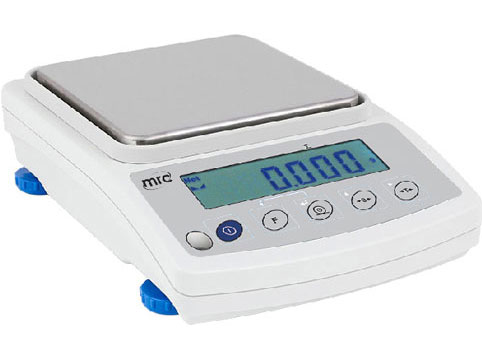Weighing balances that offer high resolution or readability are precision balances in the weighing industry. Such balances are designed and calibrated to provide accurate readings down to the smallest division. This level of accuracy makes them a popular choice for many industries, including laboratory work, chemical analysis, and food processing. Precision balances often include several features that make them more versatile than other scales.
A precision balance is a weighing balance designed to accurately measure objects down to the smallest division. These balances can provide extremely precise and reliable readings, making them perfect for many industrial and laboratory applications. Precision balances can measure from a few hundred grams to kilograms. Although precision balances have a higher capacity, they don't weigh as accurately as analytical balances. Precision balances may offer additional features such as automatic taring, parts counting, percentage weighing, density determination, or mass unit conversions.
How To Select A Precision Balance For Your Application?
When selecting a precision balance, it is important to consider the necessary accuracy and capacity. You should also evaluate factors such as size, readability, calibration options, and additional features that you may include.
If you need to test materials for construction sites or heavy industrial applications, you will need a balance that can hold a lot of weight and is very accurate. If you're looking for a precision balance to measure lighter items like jewelry, coins, or small components, you should choose one with a smaller capacity and more accurate readability.
When selecting a precision balance, it is also important to consider the user interface. Many offer simple knobs and LCDs that make it easy to use, while others may feature weight-sensing technology and built-in software programs. Make sure to evaluate if the scale offers all the functions needed for your application before purchasing.
Different Uses Of Precision Balances
Precision balances are very popular in the laboratory, chemical analysis, and food processing industries. You can use them to measure recipe ingredients, weigh test samples and accurately check calibrations. Precision balances are commonly used in the medical industry to measure liquids and powders for medications and treatments.
Testing materials like concrete at construction sites also requires precision balances to ensure accuracy and safety. Precision balances are used in physics and chemistry courses in educational settings, allowing students to understand how matter behaves under different conditions.
It is used to calculate the weight of materials used in lubricants and oils used in the industrial and automotive sectors. Companies also use precision balances to measure items like coins, jewelry, and precious metals.
Additionally, you can find these scales in pharmacies for accurate prescription dosage measurements. Precision balances may also be used in research laboratories to precisely measure chemicals or biological specimens. Precision balances are often seen in jewelry stores for weighing gold, silver, and other precious stones. Finally, precision balances may be used in industrial settings to check component weights during manufacturing processes such as die casting or metal stamping.
Browse a full range of precision balance products
Radwag precision balances have a wide range of maximum capacity values that are suitable for use in almost every laboratory and industry.
Radwag's precise manufacturing processes ensure accurate, reliable measurement and proper operation over time.
precision balances are divided into three product groups: professional, advanced and standard.
precision balances enable rapid and accurate determination of mass in the laboratory and industry.
A wide range of scales are equipped with an innovative measurement system based on Radwag ® MonoBLOCK® technology.
This is a Radwag patent, which ensures high stability and recurrence over time.
For proper maintenance of scales, an instruction file for cleaning the instruments attached: "Laboratory balance cleaning"
